Redefining AI Labor: A Town Hall Paving the Way for Fairness and Equity for Data workers in the AI industry
November 22, 2024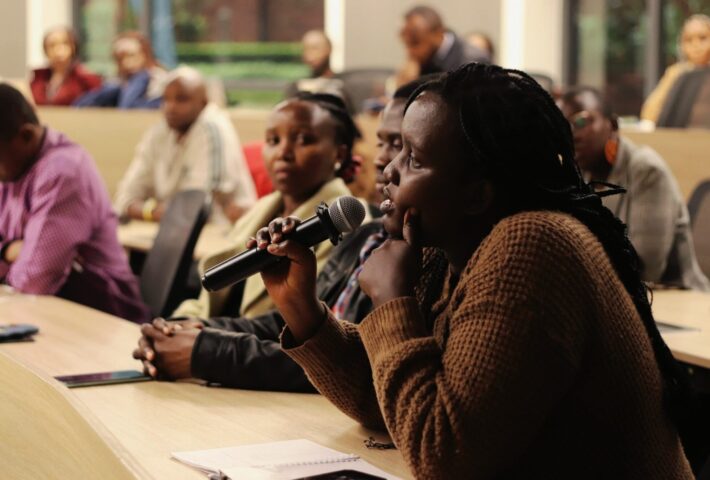
On November 15, 2024, Nairobi witnessed a powerful convergence of minds at Aga Khan University. The “Redefining AI Labor” townhall, organized by Ai Kenya and supported by the Pulitzer Center, brought together a vibrant mix of data workers, BPO representatives, legal minds, AI engineers, and mental health professionals. Their mission? To shine a spotlight on the unsung heroes of the digital age—the data workers—and chart a course for fairness, equity, and ethical practices in AI labor.
Shining a Light on AI’s Hidden Workforce
The event opened with a compelling welcome by Alfred Ongere of AI Kenya, who set the tone by highlighting Kenya’s potential as an AI labor hub—and the urgent need to address the injustices within the ecosystem. Drawing on The Platform Proletariat by Tatiana Dias, Ongere provided a powerful framework for understanding the struggles faced by data workers globally and locally.
Afy Malungu Bobyondo, Africa Program Manager at the Pulitzer Center, underscored the importance of bridging knowledge gaps in AI accountability. She emphasized the Pulitzer Center’s commitment to fostering equitable labor practices and building informed public discourse.
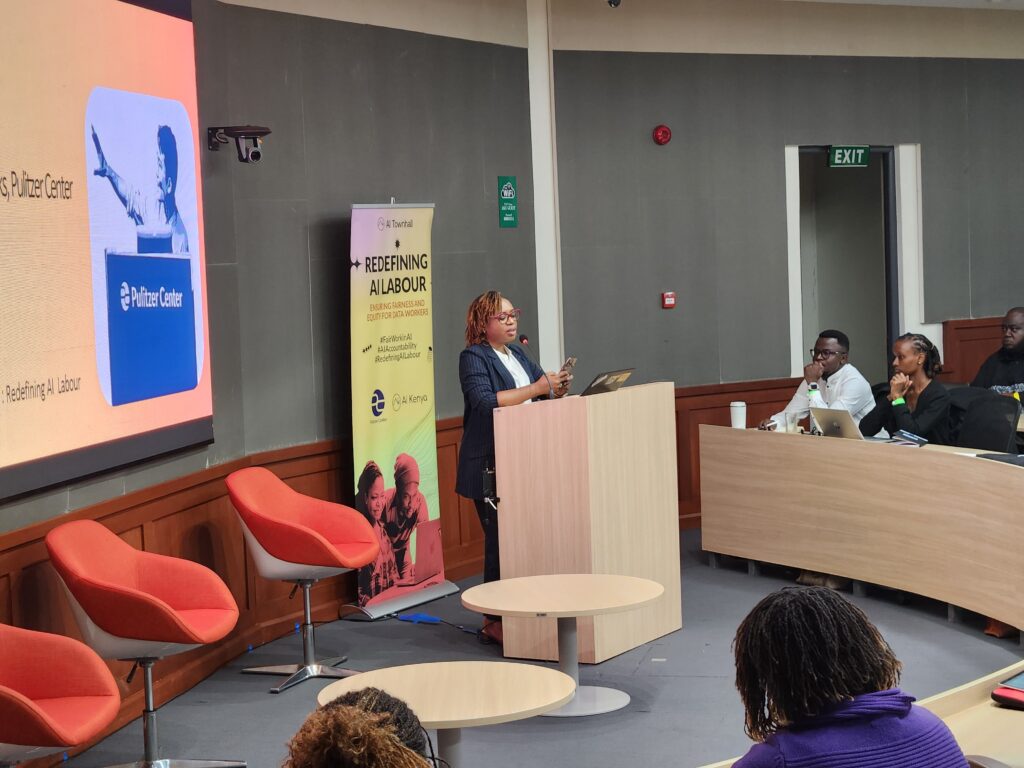
The stage was set for a series of insightful panel discussions that laid bare the realities of AI labor.
Panel 1: Unmasking the Realities of AI Labor
Moderator: Peter Mwangangi, BBC World Service Africa
Panelists:
– Mercy Mutemi, Advocate
– Ephantus Kanyugi, Programs Manager, Data Labelers Kenya
Ephantus’ powerful testimony captured the audience’s attention. Once a data annotator, he detailed the severe challenges faced by Kenyan workers:
– Unfair Pay: While Kenyan data workers earn as little as $2 per hour, their global counterparts earn $15–$60 hourly.
– Exploitation: Workers are mislabeled as independent contractors, denying them essential rights like healthcare and job security.
– Mental and Physical Strain: Long hours, exposure to graphic content, and lack of ergonomic support lead to burnout and health issues.
Ephantus advocated for fair compensation, unionization, and the legal recognition of data labeling as a legitimate profession.
“One of the advantages of this line of work is that it never gets boring,”
– Ephantus Kanyugi, Data Labelers Kenya.
Mercy Mutemi brought a legal lens to the conversation, questioning why data workers are treated as a “dirty secret.” She argued that Kenya must build its own AI industry to avoid perpetually serving as a training ground for foreign systems. A heated Q&A session explored unionization challenges, the legality of long-term contracting, and strategies for adapting labor laws to the AI era.
“When you ask me where the gap is, it is that the law is not responding to what is happening, so we have very exposed workers in a very exploitative field both by choice and by design,”
-Mercy Mutemi, Advocate
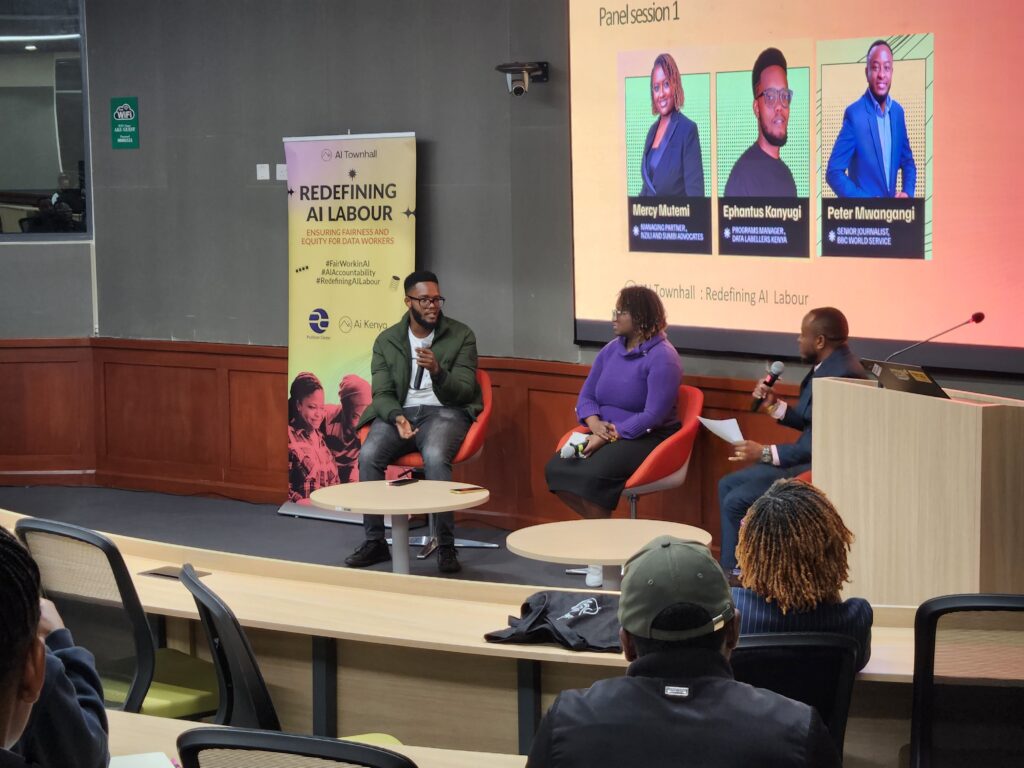
Panel 2: Mental Health and Worker Well-Being
Moderator: Peter Mwangangi
Panelists:
– Victoria Rika, Chiromo Hospital
– Festus Kiragu, CloudFactory
Mental health took center stage in this session. Victoria Rika delivered a heartfelt presentation on managing stress and mental health in high-pressure AI jobs. She emphasized the importance of normalizing mental health conversations and maintaining balance between physical and mental well-being. Festus Kiragu showcased CloudFactory’s efforts to improve working conditions through:
– Peer support groups and in-house counseling.
– Comprehensive training and skill assessments.
– Flexible remote work options and transparent communication.
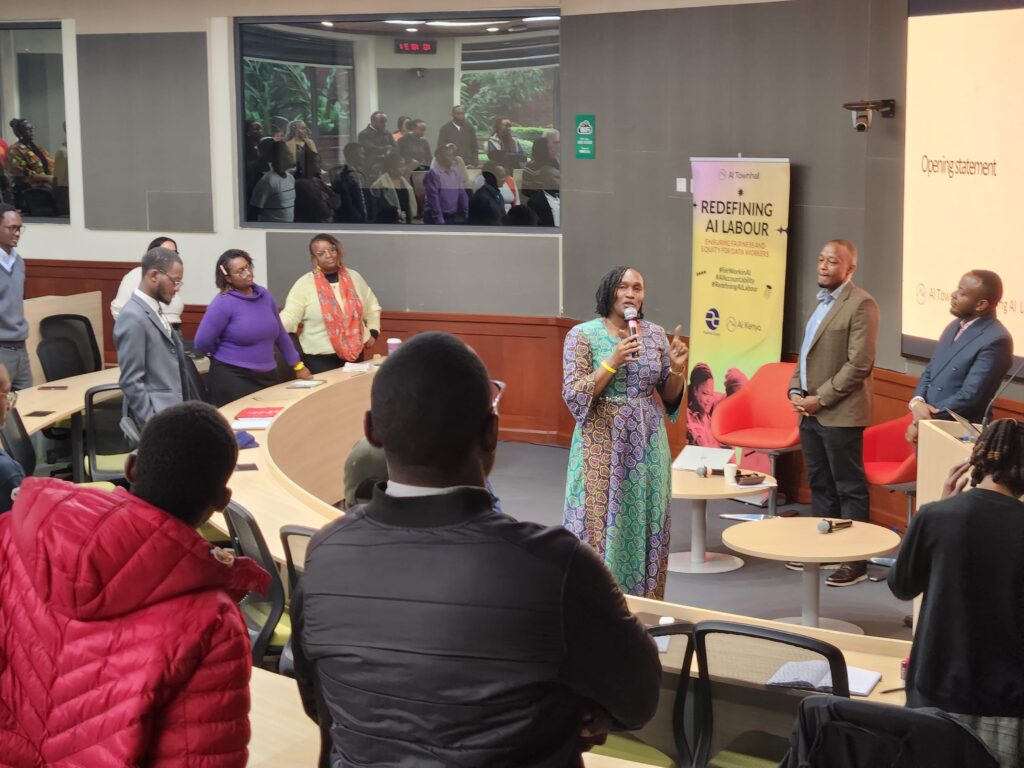
Key Debates
Discussions became lively as the audience questioned disparities in wages, career progression opportunities, and the role of government in setting industry standards. Festus explained the differences in market conditions and emphasized the need for upskilling in Kenya to increase wages and provide career growth for data workers.. He stated that this would increase the wages and provide career progression for data workers. The session, which was also livestreamed on YouTube , extended the conversation to a wider online audience, amplifying the dialogue and engagement beyond the physical attendees.
“This sector is special because all VCs , big tech and heavily funded startups are involved. Let’s look at this, what a great question – it’s not a matter of being more important humanly. However, it can be argued that the impact globally of the data workers – is leaps and bounds comparatively to the house girl example. Also, with respect, we don’t say house “girl” anymore.”
– Rebecca Powers on LinkedIn
Memorable Moments from the Town Hall
- The Discovery of “Akili Mnemba”: The Swahili term for Artificial Intelligence was unveiled, adding cultural significance to the conversation.
- Connecting Over Meals: Shared meals during breaks fostered meaningful networking among participants.
- Dynamic Discussions: Lively exchanges between data workers and BPO representatives highlighted the need for continued dialogue.
The town hall concluded with a resounding call to action:
- Government Involvement: The absence of government representatives underscored the need for their participation in shaping AI labor policies. Future discussions will have them as the key contributors.
- Mental Health Support: Normalizing and de-stigmatizing mental health remains a critical priority.
- Equitable Policies: A collaborative push for fair wages, worker protections, and ethical labor practices is essential.
The event was hailed as a transformative milestone, providing a rare platform for open discussions, shared understanding, and collective solutions.
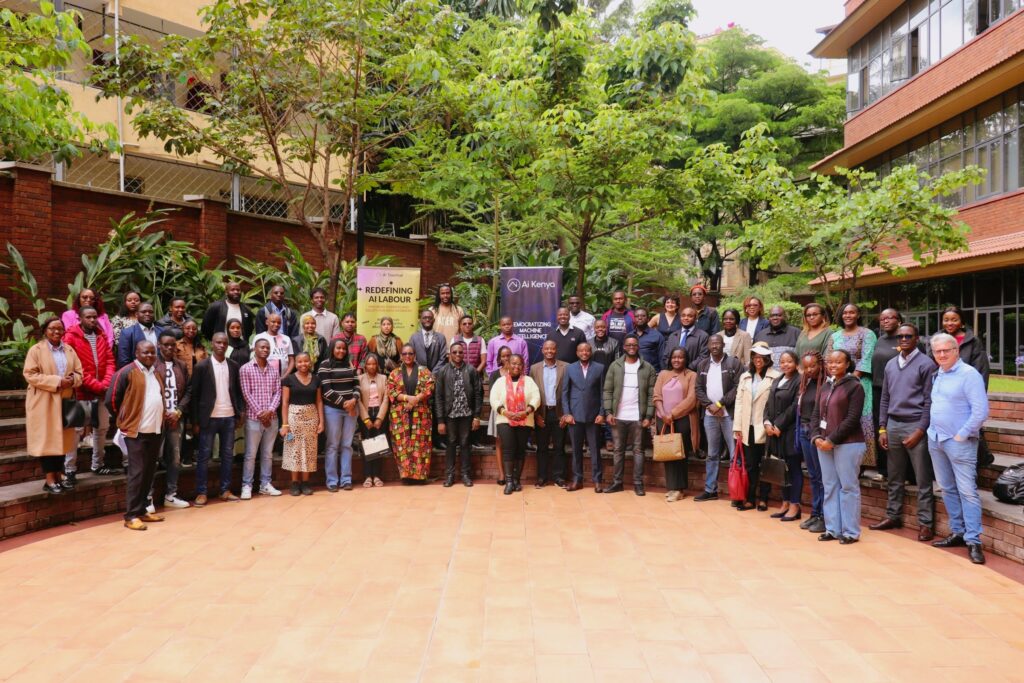
The “Redefining AI Labor” townhall supported by Pulitzer Center was more than an event—it was a rallying cry for fairness and equity in AI-driven industries. By bringing diverse voices to the table, the townhall set the foundation for a fairer and more sustainable AI labor ecosystem. As the curtains closed, one thing was clear: this was just the beginning. The journey to achieving equitable AI labor practices continues, and Kenya is poised to lead the way. A big thank you to Pulitzer Center for supporting this townhall.

